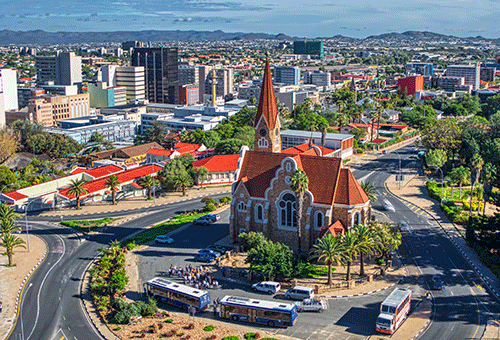Three persons per square kilometre make Namibia a country with one of the lowest population densities in the world. Now, according to a report titled ‘New World Wealth’, this low population density is Namibia’s biggest advantage.
New World Wealth is a global wealth intelligence firm based in South Africa which tracks the movements and spending habits of the world’s wealthiest people. Their research covers 90 countries and 150 cities worldwide, with a special focus on Africa.
“Low population density countries tend to be wealthier on a wealth per capita basis than densely-populated countries. Notably, Namibia ranks as the third- wealthiest country in Africa on a wealth per capita basis, after Mauritius and South Africa. Wealth per capita (average wealth per person) is arguably the best indicator of the true financial health of an economy, so this is a key factor,” reads a report released this month.
The report added that having a sparse population allows for more wild open spaces, giving wildlife the opportunity to thrive, which improves the quality of life for locals and boosts eco-tourism opportunities. Notably, over 20% of Namibia is protected by national parks, making it one of the most ecologically- friendly countries on earth.
The research also highlighted Namibia’s rich natural resources, low population density, robust energy and transportation infrastructure, and, most importantly, its superior safety and security to that of its neighbours, putting the nation in an ideal position to become Africa’s next major centre for millionaires.
Key drivers of this future growth include Namibia’s safety, low tax rates, and a well-developed banking system. The top rate of income tax is a relatively modest 37%, and perhaps most notably, there is no estate duty or capital gains tax in the country.
Whilst supporting the report, independent economic and business researcher Josef Sheehama is, however, concerned about the persistent imbalance between Namibia’s high income and simultaneous extreme prevalence of poverty which can be traced to enduring income inequalities.
“Furthermore, Namibia has a stable democratic political system. However, wealth distribution is amongst the most unequal in the world. Some sections of Namibia’s population enjoy a standard of living comparable, but over 40% were suffering from multidimensional poverty, even before the start of the Covid-19 crisis. This section of the population not only has a low income, but also has limited access to education, healthcare and standards of living,” he stated.
Sheehama noted that Namibia’s people are effectively robbed of wealth by an economy which enables a small minority of the citizens to get rich due to corruption. Therefore, he advised the Namibian government to change the wealth redistribution policy from redistribution to creating an environment in which all enjoy the country’s wealth.
In opposition to the report, local economist Omu Kakujaha-Matundu said the gross domestic product (GDP) per capita measurement is a bad indicator of the wealth of a country.
“You should look at what is the real income/disposable income in the pockets of consumers, as the consumption component is very important in an aggregate demand. Now, where you have gross income inequality, who holds that income? Few companies, corporates and a few wealthy or rich individuals. In the end, most of the income is exported or repatriated,” he reasoned.


